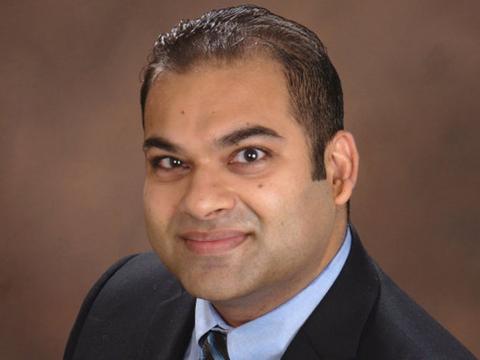By Kemo Cham
Sierra Leone has got a lot to celebrate when it comes to its response to health emergency, according to a public health expert working with the United States Center for Disease Control and Prevent.
Dr. Tushar Singh, who is the Country Head of the CDC, said Sierra Leone’s handling of the ongoing Covid-19 pandemic is a far cry from its experience with the 2014-2016 Ebola epidemic, noting that back then not only did the country lack the infrastructure but also the human resource.
Unlike during Ebola, when support came from foreign institutions, including the CDC and Public Health England, among others, this time round Sierra Leoneans are themselves handling the response, from surveillance to laboratory testing, said Dr. Singh.
“Sierra Leone now has capacity to do PCR testing, the gold standard of testing. Sierra Leone has come a long way. This is a great accomplishment,” he stressed in a statement at the inauguration of a new biosafety laboratory in Makeni late last month.
The P3 laboratory hosted within the regional hospital in Makeni City becomes the sixth laboratory in Sierra Leone competent to test for SARS-CoV-2, the virus that causes Covid-19.
It is also the first such laboratory to be established in the northern part of Sierra Leone.
With the inauguration of the lab, all seven districts in the northwest and northern region of the country are now supposed to be sending their Covid-19 specimen to Makeni for testing, instead of going through the long journey to Freetown or Kenema.
The Makeni lab is the first of three labs the government and its partners are working on establishing as part of efforts to increase the country’s lab capacity and boost its response to the pandemic which continues unabated.
Latest figures from the National Covid-19 Emergency Response Center (NaCOVERC), as of September 6th, Sierra Leone has had 2, 054 cumulative confirmed cases with 71 fatalities.
Public health experts say the key to breaking the transmission of Covid-19 is through testing. And this is where Africa, particularly countries like Sierra Leone, is lagging behind in the global response to the pandemic.
Sierra Leone is doing one of the lowest daily tests – between 400 and 450 – according to the National Covid-19 Emergency Response Center (NACOVERC), as of the end of August. The goal is to increase it to 1000 daily, according to officials.
But for this to happen, a lot of work is needed both in terms of infrastructure – lab – and human resource capacity.
The World Health Organization (WHO) is spearheading efforts to this direction. Ahead of the establishment of the three new labs, training has been ongoing for 30 molecular lab scientists, who will be manning these laboratories across the country.
The WHO Country Office hired international laboratory technicians to lead the process. The trainees have recently completed two weeks of intensive theoretical training and were deployed in labs across the country.
Dr Evans Liyosi, WHO Country Representative, said his office has offered to take care of the lab technicians remuneration for six months when they will have been fully deployed at the end of the raining, as a way of helping the government.
Dr Liyosi was excited about the inauguration of the Makemi Molecular lab on Saturday 29th August. He said the development was a demonstration of the power of collaboration between government and its development partners.
The lab is housed in a structure within the Regional Hospital in Kenema which was rehabilitated by the CDC Foundation, through CHAMS, a project geared towards preventing under five deaths.
The WHO provided the funding for the laboratory equipment.
The CDC has been operating in Sierra Leone as an established entity since 2015 by providing technical support to the government under the Global Health Security agenda. The agency began working in the country in the 1970s, focusing on Lassa fever. In 2008, through the U.S. President’s Emergency Plan for AIDS Relief (PEPFAR), CDC began supporting Sierra Leone’s HIV response. A CDC country office was established in Freetown in 2015, focusing on global health security and Ebola response. It works closely with Sierra Leone’s health ministry on strengthening laboratory, surveillance, emergency management, and workforce capacity to respond to disease outbreaks.
Copyright © 2020 Politico Online








